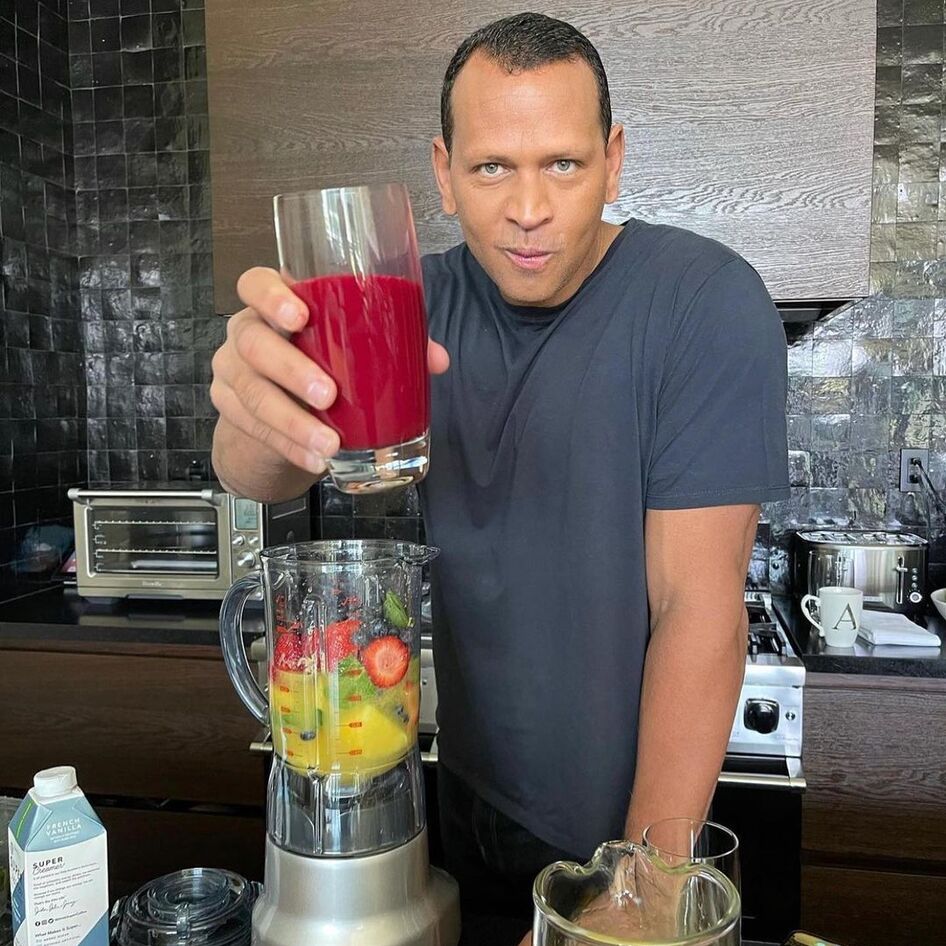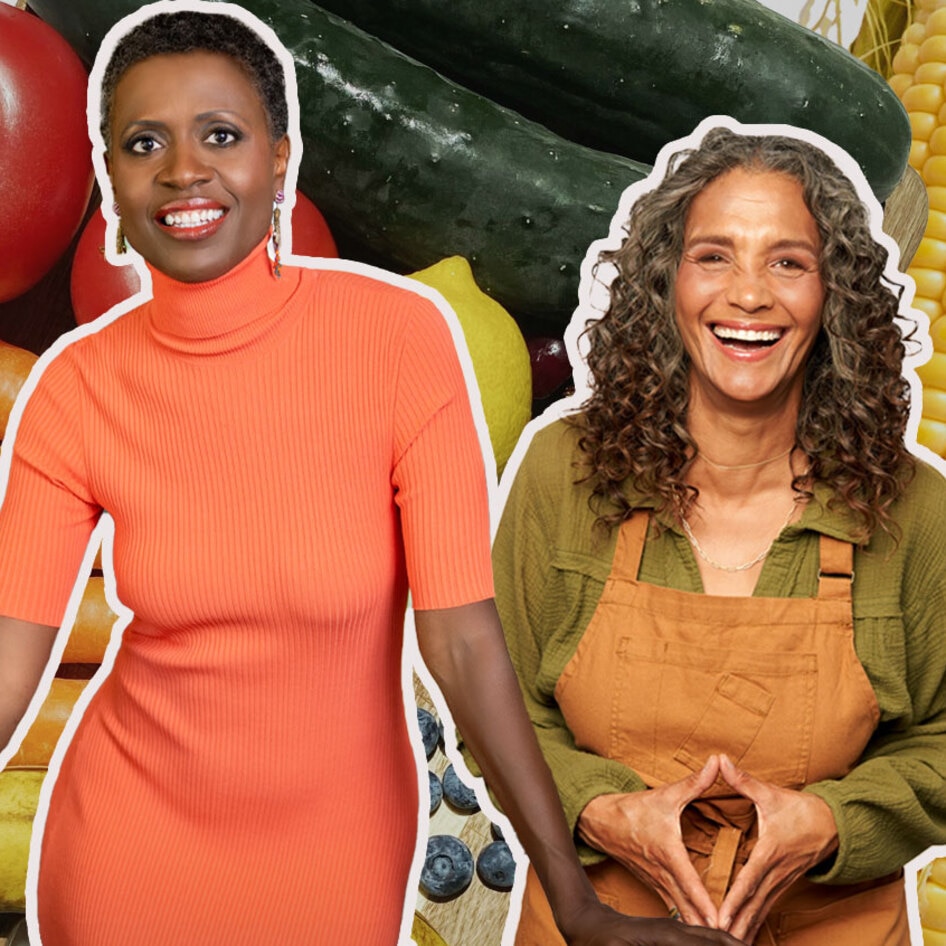31 Changes in 31 Days
A handy guide to a complete health overhaul in just one month!
December 31, 2014
As the New Year begins, so does yet another chance to shift our habits. From out of the gluttonous ashes of the holidays, each January we rise like phoenixes in a fiery burst of health and inspiration—one that lasts at least until January 10. But what about when our best intentions fall by the wayside, the siren song of comforting homey food like savory casseroles and dozens of leftover holiday cookies is too strong to resist, and life speeds back up to its normal break-neck pace? Beyond the goals that are supposed to kick in on January 1, true wellness comes as a practice—one that takes time to establish. A month’s worth of work can result in a year’s worth of health, so we’ve taken the mystery out of getting healthy in the New Year by collecting 31 days of tips and tricks from some of the country’s most invaluable experts. Try one new habit per day, and see how you feel come February!
1. Go vegan! Let’s just take it for granted that this is the first step. The best thing about veganism is that it’s a one-step process: simply stop buying animal products. Now that you’ve established yourself as vegan, dig a little deeper.
2. Eat something nourishing. It’s cold out, and the homemade goodness of extra gooey mac ‘n’ cheese beckons. Instead, fill up with something that treats your body right. Cancer survivor and cookbook author Christina Pirello prefers dishes like lentil soup, brown rice with dried daikon, kombu and shiitake mushroom stew, and greens sautéed with garlic and chili peppers.
3. Love yourself. It’s important to remember to treat yourself kindly. As best-selling author of Victoria Moran says, “You love your mom (even when she’s annoying), you love your dog (who’s never annoying), and you love your friends with all their endearing imperfections. Why be so egocentric as to assume that, out of everyone on earth, you get to be unlovable?”
4. Work out. Try this advice from vegan bodybuilder Robert Cheeke, “When deciding whether to exercise or not, I always think of my reasons for doing so. If I want to succeed, I know consistency and application are the only ways to get there, and therefore, my only rational response is to apply myself in ways to make success a reality.”
5. Make sure to get enough vitamin B12. As dietitian Julieanna Hever says, “Part of being a responsible vegan is ensuring adequate consumption of this nutrient—the only one that’s unavailable directly from plants.”
6. Eat broccoli. As Dr. Michael Greger points out on his site nutritionfacts.org, broccoli has been proven to have anti-mutagenic properties—meaning it can protect healthy cells from carcinogens. Steam some up with garlic to fight cancer deliciously.
7. Try to eat an all-in-one meal. Ever wonder what dinner provides the most balanced nutrition? Nutritionist Gena Hamshaw advises downing “a giant massaged kale salad with hemp seeds, lentils, nutritional yeast dressing, and steamed autumn squash on the side.”
8. Get spicy. Whole Foods’ Health Starts Here Immersion Program Coordinator and R&D Chef Chad Sarno can’t operate without spice and its antioxidant benefits. “Hot sauce, fresh or dried chiles, whatever—in any form, heat is an essential component to kick up any dish from sweet to savory.”
9. Get shrunk. The psychology behind eating animals is vast and fascinating—and understanding exactly why we choose not to eat them is equally so. As James McWilliams writes in The Atlantic, “We should never fail to overlook the psychological implications of something as emotionally charged as killing animals for food.” Pick up a copy of Just Food for more of Williams’ wisdom.
10. Reach out. Longtime food activist and author Michele Simon advises those newly interested in the realm of food politics to not exclusively interact with other vegans, but to “start finding common ground with others in the food-justice movement.”
11. Detox. Just as important as increasing the amount of nutritious, healthy food you consume is cutting out foods that don’t sit well. Alexandra Jamieson, author of The Great American Detox Diet, says “The most important change you can make to become more healthy is to remove toxic ingredients from your diet—for you it might be caffeine, refined sugars, wheat, or corn.”
12. Make a mistake. In any transition, be it in your eating habits or at work, there will be screw-ups. Take it from best-selling author Kris Carr, who refuses to be labeled as a guru. “I get afraid that if I get to be the ultimate expert and the ultimate guru that means that I can’t make any mistakes and discover.”
13. Be persistent. Mom, actress, and activist Alicia Silverstone keeps her sanity by sticking to her plan. “For me, balancing work, family, and activism starts with eating well. When I eat well, things fall into place perfectly, but if I stray too far from my superhero plan, everything can fall apart quite quickly.”
14. Eat plants. That’s right, it’s not just about being vegan, as living on a diet of Oreos and Fritos won’t cut it. Author and speaker Rip Esselstyn says, “I would tell every athlete out there, every weekend warrior, every recreational athlete, and every human being, that there’s nothing in animal-based products that you can’t get in a better, safer form from plants.” Make sure your dinner plan includes a salad.
15. Get scared. If trends in the US continue on their current trajectories, half of the population will be obese by 2030, which could result in an additional 8.5 million cases of diabetes, 7.3 million cases of heart diseases and stroke, and 669,000 cases of cancer. Imagine the people you love. Some of them are likely to become these statistics.
16. Think about the future. If child rearing is part of your routine, you know the task at hand can be daunting. Actress and mom Mayim Bialik takes (some of) the stress out of it with this simple advice, “Get educated. There are so many resources about the needs of babies and toddlers, that will make you much more relaxed.”
17. Turn off the TV. In the US, the 24-hour news cycle ensures a constant stream of unsubstantial reporting, often repeated. Is that really something anyone needs?
18. Go organic. The benefits of ditching conventionally grown vegetables are many, but did you know that women who have been exposed to pesticides while pregnant consistently deliver children with lower IQ scores? That means your choice at the supermarket can have a dramatic impact on someone else’s life.
19. Think positive. Even if your natural disposition is more glass-half-empty, the benefits of looking on the bright side are too important to ignore. According to the Mayo Clinic, positive thinkers enjoy longer lives, lower rates of depression, higher resistance to colds, and better cardiovascular health.
20. Get schooled. Want to know all the ins and outs of eating for health? Consider getting a certificate in plant-based nutrition, designed by co-author of The China Study, Dr. T. Colin Campbell. It’s available as an online program from Cornell University.
21. Eat (for) your feelings. What you eat contributes to how your body handles stress, according to Physicians Committee for Responsible Medicine. The group recommends a high-fiber, low-fat diet full of fruits and veggies to keep your immune system running in tip-top shape.
22. Wash up. Your mother was right, according to the Centers for Disease Control and Prevention. The basic act of hand washing could potentially save more than 3.5 million children from fatal diarrheal diseases and pneumonia worldwide each year.
23. Hail crucifer. You’ve already kicked up your broccoli consumption, but don’t forget the other crucifers! According to Dr. Joel Fuhrman, by eating 20 percent more cruciferous veggies (such as cabbage, cauliflower, kale, bok choy, and arugula), your likelihood of developing cancer decreases by 40 percent!
24. Phone a friend. With hectic post-holiday schedules, it can be tempting to spend the rest of the winter hibernating. But friends don’t just help with dishes after a fantastic party—they can keep you live longer. Researchers at Harvard University found that seniors with the most friends had half the rates of memory loss as those with the fewest buds.
25. Shut down. Getting your eight nightly hours of shut-eye doesn’t just keep you from turning into a full-blown caffeine addict. In addition to being a necessary part of every day, sufficient sleep improves memory, brain function, heart health, the immune system, and decreases your chances of developing diabetes and becoming obese.
26. Heap on whole foods. Need more motivation to kick your fast-food habit? Consumption of trans fats—typically found in processed fast food, even veg options like French fries—have been associated with higher risk of developing depression. Replace to-go spuds with homemade baked sweet potato fries.
27. Stay motivated. Avoiding burnout is key. Paul Shapiro of The Humane Society of the United States, who’s been working in the movement for the last 19 years, says, “Think about the historic progress our movement is making each year and what an honor it is to be a part of it. We’re seeing more advancements made for farm animals—both in terms of banning various factory-farming practices and mainstreaming meat-free eating—than any time before in the US animal movement’s history.”
28. Breathe it in. Meditating is a highly effective way to calm our stress responses—meaning that even when put in stressful situations (oh, say, the inevitable return to work after the holidays), those who meditate are better able to keep their cool after just six weeks of practice.
29. Try a tri(athlon). Want to really test your fitness? Signing up for a triathlon will give you a goal to work toward, plus extra motivation to amp up workouts. Professional plant-based triathlete and author Brendan Brazier recommends that newbies, “start swimming with a group to get stroke instruction, and get fitted on a bike. And don’t increase running mileage (or time) more than 10 percent per week.”
30. Shove it. Or, more accurately, tell everyone else to. Taking time for yourself during the day is a crucial component of keeping your composure.
31. Laugh. This one might be self-explanatory, but in addition to being enjoyable, laughter enhances creativity, activates our brains in ways similar as eating chocolate, and goofy people tend to be better at recognizing social signals from others. For a good chuckle, check out old Seinfeld episodes (vegan comedienne Carol Leifer used to write for the show), which is funny enough to induce an Anderson Cooper-style giggle fest. Newman!
JUMP TO ... Latest News | Recipes | Guides | Health | Shop







